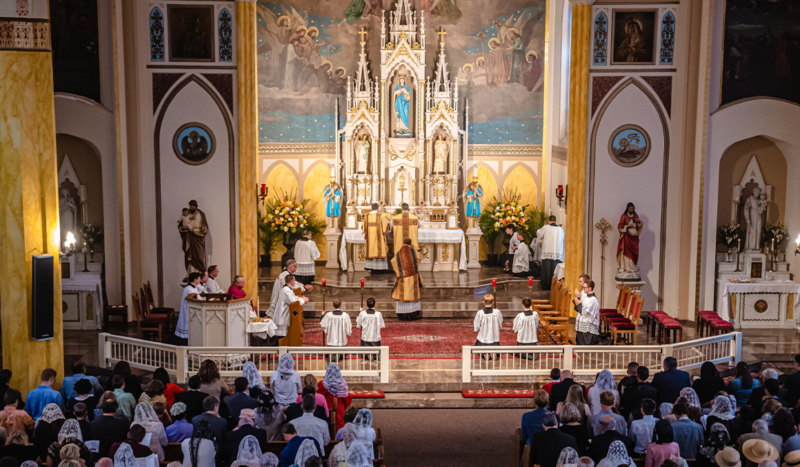
Alison Girone
CV NEWS FEED // A canonically approved commentary on the Catechism of the Catholic Church asserts that the Vatican does not have the authority to ban the attendance or celebration of the Traditional Latin Mass, according to an expert editor.
Aaron Seng, general editor of the Catholic Catechism Index, wrote about this in a June 20 article for Crisis Magazine. His article comes amid rumors that have emerged about a Vatican-issued total ban of the celebration of the Traditional Latin Mass.
Seng wrote that should such a ban occur, several questions immediately arise, the first being whether the Vatican has the authority to issue such a prohibition.
The second, Seng wrote, is: “If the pope were to declare such a prohibition (validly or not), would the faithful be obliged in conscience to comply, per the virtue of holy obedience?”
Seng highlighted several question-answer excerpts from the catechism Credo: Compendium of the Catholic Faith, the catechism approved in 2023 by Bishop Athanasius Schneider.
One of the questions in Credo is: “Could the traditional Roman Rite ever be legitimately forbidden for the entire Church?”
Credo’s response is: “No. It rests upon divine, apostolic, and ancient pontifical usage, and bears the canonical force of immemorial custom; it can never be abrogated or forbidden.”
Another paragraph from Credo states that the pope is “obliged to faithfully maintain the Church’s traditional liturgical rites,” especially because he promises to do so.
Credo responds to the question of whether a pope can abrogate, or repeal, “a liturgical rite of immemorial custom” with an immediate “No.”
“Just as a pope cannot forbid or abrogate the Apostles’ Creed or Nicene-Constantinopolitan Creed or substitute a new formula for them, neither can he abrogate traditional, millennium-old rites of Mass and the sacraments or forbid their use,” the response continues. “This applies as much to Eastern as to Western rites.”
Seng’s article also highlights excerpts from Credo about acts of disobedience to the pope, schism, and whether Catholics are obligated to comply with bans against traditional liturgical rites of the Mass.
Seng explains further that Credo states:
“The rites of venerable antiquity form a sacred and constitutive part of the common patrimony of the Church, and not even the highest ecclesiastical authority has power to proscribe them.”
Seng is also the president of Tradivox, a project that aims at creating a digital database of Catholic catechisms to allow for easier online resources for questions on Catholic doctrine.

